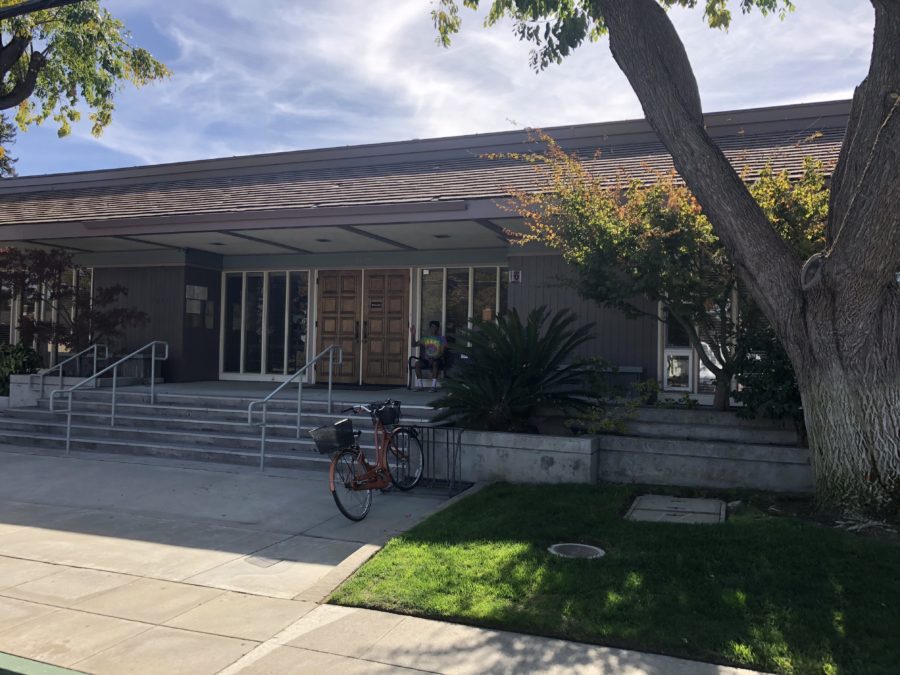During a school board meeting in February, three local residents presented a letter signed by over 60 local doctors, dentists, and psychologists, requesting for the school board to push back MVLA high school start times. The pressure from members of the community has led the school board to consider alterations to the current bell schedule for future years.
“Sleeping eight to nine hours per night definitely means happier and more resilient teens,” said Dr. Cara Barone, a local pediatrician who attended the meeting. “We live in an area where success is very narrowly defined, and we encourage our kids to compete in an unhealthy race for achievement.”
While health professionals are pushing for later start times, there are many considerations the school board must investigate before acquiring a new bell schedule.
“When you move the start time later, the end of the day is later,” explained Superintendent Jeff Harding. “When you move the end of the day later, it affects practice times, dismissal, transportation, club activities, and everything else.”
According to Harding, the decision is ultimately up to the school board; however, they are currently in a data collection phase. The district is contracted with Hanover, an organization that completes educational research.
Hanover compiled their findings into a “School Start Times Literature Review and Implementation Considerations” report, which was specifically designed for the MVLA district. The report includes information from The American Academy of Pediatrics, stating that “delaying school start times is an effective countermeasure to chronic sleep loss and has a wide range of potential benefits to students with regard to physical and mental health, safety, and academic achievement.”
The report also analyzes the impacts a later school start would have on traffic flow, parents’ work schedules, extracurricular program attendance, teachers’ work schedules, and before-school athletics.
“Delaying school start and dismissal times may increase community traffic congestion and lengthen commutes for students, parents, and teachers to and from school and work,” the report acknowledged. Hanover suggests alternate drop-off locations and drop-off times, as well as designated drop-off zones to combat traffic congestion.
Working parents have voiced concerns with being able to drop their child off at school following a change in start time. Hanover suggests establishing supervised areas for students who arrive early, which was recently implemented by the Palo Alto Unified District.
Starting this year, the Palo Alto Unified District delayed their start time from 8:15 a.m. to 8:30 a.m. on odd-numbered days, and 10:05 a.m. on even-numbered days. By significantly pushing back the even-numbered start time, they created a flexible morning schedule, which allowed students to come as early as 8:30 a.m. and provided access to school resources such as the library and gym.
A common concern with student-athletes is that pushing back the school day results in fewer hours available for outdoor sports practices during the day. However, the report concludes that schools that implemented a later start time did not experience a decrease in athletic participation, and research suggests that “with increased amounts of sleep, students can finish their homework faster and as a result, may have additional time after school to participate in community-based extracurricular activities.”
Hanover advice for schools that choose to push back school start times to install field lights to add hours of available practice time. A decision following the debate among student-athletes and musicians, faculty, coaches, and neighbors over installing field lights has not been reached. According to Varunjit Srinivas, the School Board Representative for Mountain View High School, a team of students, parents, and district officials are reviewing the proposed changes, and are expected to reach a decision soon.
Despite inevitable challenges, there are numerous arguments supporting the creation of a new bell schedule with a later start time.
“There is a rhythm in the way teenagers like to sleep that biologically has them get up later than we typically start school. So that is a fundamental issue,” Harding said.
The school board is also looking into our current bell schedule and investigating the effectiveness of having two block days rather than four. In April the school began surveying students, parents, and staff about bell schedule preferences using an online questionnaire. “We’re looking at combining the start time and bell schedule initiatives,” Harding said.
































